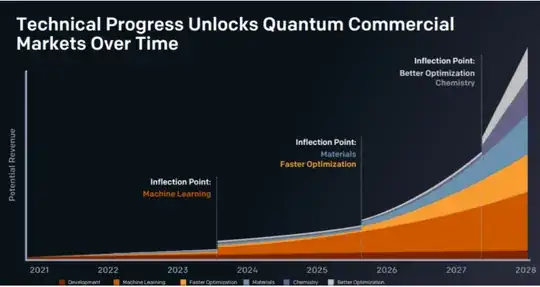In this plot:
taken from here, IonQ is claiming to have a potential application in machine learning by 2023. What applications could they have in mind?
From what I understand, modern error correction prevents obtaining speedup from any quadratic algorithms, so the only realistic speedup could be done with algorithms faster than polynomial. From this chart:

It seems like there aren't any ML applications that are faster than quadratic without "the fine-print" that they might not be do-able in a real-life situation.
Is there something I'm missing here?
